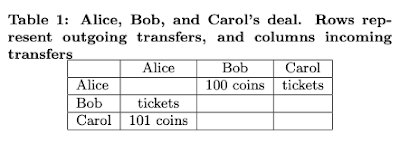HotStuff: BFT Consensus in the Lens of Blockchain
This paper appeared in PODC 2019, and is by Maofan Yin, Dahlia Malkhi, Michael K. Reiter, Guy Golan Gueta, and Ittai Abraham. The paper presents HotStuff, a leader-based Byzantine fault-tolerant consensus protocol. HotStuff forms the basis of LibraBFT which is used in Facebook's Libra project. HotStuff uses the partially synchronous model for liveness, but it is safe even under an asynchronous model. (This is also how Paxos operates, as a crash tolerant consensus protocol.) Once network communication becomes synchronous, HotStuff enables a correct leader to drive the protocol to consensus at the pace of actual (vs. maximum) round duration --a property called responsiveness . Another innovation in HotStuff is that it provides communication complexity that is linear (rather than quadratic) in the number of replicas. In other words, all-to-all broadcasts are replaced with only participant-to-leader and leader-to-participant communication, with rotating leaders. HotStuff is the ...

